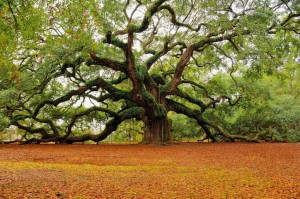 Nearly every major religion or thought system in the world has a period of time dedicated to lean times, fasting, contemplation of suffering, and transitions from life to death (or from death to life). There is the Christian season of Lent (which we are in right now), the Muslim month of Ramadan, the O-higan time period around the equinoxes in Japanese Buddhism, etc. That this season for reflecting on the more difficult things of life exists across religions and cultures emphasizes that these non-rosy times of life are very much a part our shared human existence and deserve our respect and contemplation.
Nearly every major religion or thought system in the world has a period of time dedicated to lean times, fasting, contemplation of suffering, and transitions from life to death (or from death to life). There is the Christian season of Lent (which we are in right now), the Muslim month of Ramadan, the O-higan time period around the equinoxes in Japanese Buddhism, etc. That this season for reflecting on the more difficult things of life exists across religions and cultures emphasizes that these non-rosy times of life are very much a part our shared human existence and deserve our respect and contemplation.
As of Monday, yet another orchestra (this time, Syracuse) will be permanently out of work. Here in Philadelphia the future of the orchestra is being ironed out in negotiations and board meetings. And of course, around the world right now, there is real mortal fear, unrest, and suffering in the wake of disasters and upheavals.
What do we do when the storms of life sweep through with so much power? What do we do when societal changes are seemingly moving towards rendering our professions obsolete? What do we do when our futures and livelihoods are at stake? And most importantly, how do we begin to see a new (or renewed) path before us?
The first response to disaster in our society is often “the moment of silence” which I happen to find particularly beautiful. It allows us, in the immediate wake of the most difficult things that happen to us, to stand still – physically, emotionally and spiritually – in solidarity with those who have suffered and are suffering. In our own lives, on a day-to-day basis, it can be equally powerful. One of my very favorite writers is Rainer Maria Rilke. There is a collection of his writings called “Letters to a Young Poet.” This book is exactly what it sounds like – a collection of Rilke’s correspondences with a young poet! In it he writes:
“Being an artist [substitute “living a full life” if you like] means, not reckoning and counting, but ripening like the tree which does not force its sap and stands confident in the storms of spring without the fear that after them may come no summer. It does come. But it comes only to the patient, who are there as though eternity lay before them, so unconcernedly still and wide.”
Patience. Stillness. Awareness. A desire to fully understand the situation. Knowing that how we interpret the situation is not objective. Acknowledging the complicated nature of a problem – rather than resorting to black and white interpretations or to blaming. Taking a long view of our lives. Listening closely and being guided by that which is most important to us at our core. Not allowing ourselves to become bitter or hardened. Trusting in our ability to live a fulfilling and vibrant life. These are all things to keep in our consciousness as we work through difficulty.
But I repeatedly find myself returning to Rilke’s simple and powerful image of the tree. Out of the patience and quietness of being still and wide, space is made for wisdom, for being circumspect, for comfort. And, I believe, out of this silence and stillness also comes the vision for the way forward. If things must be different in our future (and change is inevitable, even if it doesn’t happen right away), what is the vision we have for the way things could be? What is possible? What can we imagine?
I believe it is possible to maintain our integrity and identity while responding to life’s winds with a little give, recognizing that the blowing off of our branches does not mean the end of our life. Perhaps that it even means growing in a new and unexpected way. And if we get blown completely over and uprooted, the hope is that we can find a way to salvage the wood and create something of beauty.
I was in a seaside park once, and all the trees were at a diagonal. It was an odd sight! But it struck home to me that their survival in that particular location depended upon their ability to bend and be blown diagonally by those sea winds – to have a little give. So, as human beings with a strong sense of will and a desire to control, the trick is to discern whether it is time to stand rigidly upright and risk breaking, or to allow ourselves to bend and be pruned, and to allow a renewed vision of the future to form in us.

4 Responses to Ripening Like the Tree